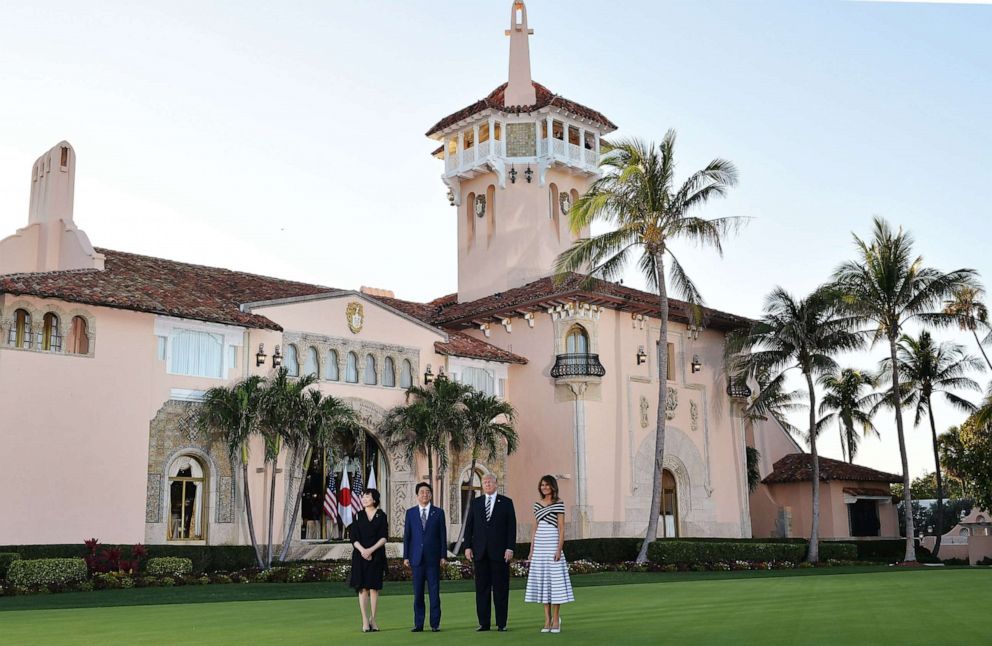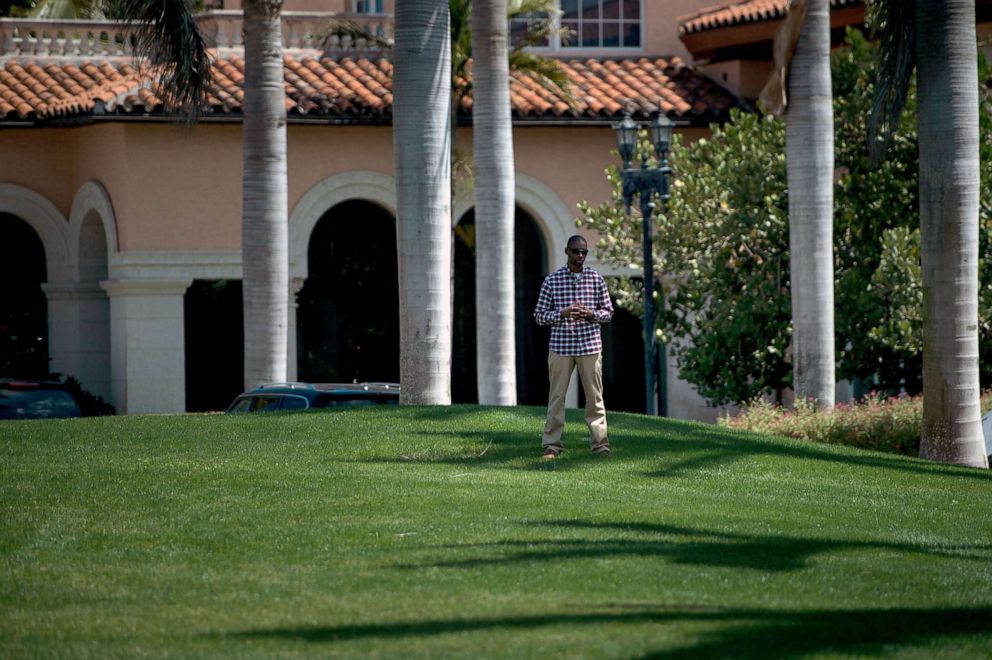Pompeo links Mar-a-Lago security breach to broader China ‘threat’
Chinese national Yujing Zhang allegedly trespassed at the president’s club.
Secretary of State Mike Pompeo Friday linked a recent security breach at Mar-a-Lago by a Chinese national with a broader “threat” he said China poses to the U.S.
Pompeo told CBS News he couldn’t comment directly on the breach, which is under investigation, but said the incident “tells the American people the threat that China poses, the effort they’re making here inside the United States, not only against government officials, but more broadly.”
Pompeo immediately pivoted to the large-scale intellectual property theft of which U.S. officials have vocally accused China.
“The theft of American intellectual property is a big business to the tune of hundreds of billions of dollars,” he said.

Asked whether the security breach was related to the intellectual property theft, Pompeo said he “can’t say anything about that particular incident,” but said it’s being looked at closely.
The secretary of state’s remarks come just two days after President Donald Trump downplayed the security incident, calling it a “fluke.”
According to a criminal complaint filed against Chinese national Yujing Zhang, at around noon on Saturday, she appeared at a Secret Service checkpoint outside the president’s country club and presented two Chinese passports. There was some confusion over whether she was a relative of a club member, and Mar-a-Lago staff cleared her through the checkpoint, the complaint says.
She went through a second Secret Service checkpoint, this one where she was screened by a magnetometer for weapons or explosives, before making her way to the club’s reception area. Only there did a receptionist discover Zhang was not on the club’s access list and called the Secret Service back.
When questioned by the Secret Service, Zhang said she had been told to attend a United Nations Chinese American Association event – also referred to as a “United Nations Friendship Event” -- that night at Mar-a-Lago by a Chinese friend named “Charles.” The event was not on the club’s schedule. President Trump was in Florida at the time, but was off-site at a nearby golf course during the incident.

Since Zhang’s arrest, one focus of speculation has been on the detail in the complaint about the electronics Zhang purportedly had on her, including four cell phones, a laptop and, especially, a thumb drive that the Secret Service said a preliminary analysis showed contained malware.
A former U.S. official familiar with White House cybersecurity concerns told ABC News Wednesday it’s difficult to tell what sort of a threat the malware posed without knowing exactly what it was – whether it was run-of-the-mill malicious code that is not uncommonly found on thumb drives, or something more sophisticated meant to eventually make its way to sensitive official networks.
James Mulvenon, a Chinese espionage expert, called the incident “troubling,” but said he was doubtful it was part of a greater plot, citing what would have been “terrible tradecraft” for an actual intelligence operation.
Zhang, who told a Florida court Monday she works as a consultant to a Chinese investment firm, has not been accused of any espionage-related crimes. She faces charges for purportedly lying to federal agents – she had initially said she was there to visit the pool before allegedly changing her story – and for entering a restricted area.
A public defender for Zhang has not responded to ABC News’ requests for comment. The Chinese government said Thursday that it had been notified of Zhang’s arrest and is providing consular assistance to her.




